Olive Tree November 2017

Volume II / Issue 19 / November 2017

From the Editorial Desk:

[I just wanted to say from the top that I am sorry that I got this edition of the Olive Tree out late. The day that I was planning to post it, I lost about three quarters of it all. the fact that I was on top of the weekend with many other responsibilities made it even worse. But Here it is, and I promise that when you start reading it you will find that it was worth waiting for! So hang on! Here we go!]
As many of us prepare to celebrate Thanksgiving, let’s take a look at gratitude.
More specifically, how is it possible to obey 1 Thessalonians 5:18, “In all things give thanks; for this is the will of God in Christ Jesus concerning you all.” especially if our circumstances are horrible? What fuels thanksgiving when life seems to be one discouragement, disappointment, disease, disaster, and death after another?
There is only one way. Jesus is both the way and He shows the way.
Jesus saith to him: I am the way, and the truth, and the life. No man cometh to the Father, but by me. (John 14:6)
Eucharistēsas: Thanks in the Face of Horror
The best place to see Jesus showing us the way is in the upper room where he “taking bread, he gave thanks, and brake; and gave to them, saying: This is my body, which is given for you. Do this for a commemoration of me.” (Luke 22:19).
The Greek word for “thanks” in this verse is Eucharistēsas.
The root word of eucharistēsas is charis, meaning “grace.” Jesus took the bread and saw it as grace and gave thanks. He took the bread and knew it to be a gift and gave thanks. eucharistēsas, thanksgiving, envelopes the Greek word for grace, charis. But it also holds its derivative, the Greek word chara, meaning “joy.” Charis. Grace. Eucharisteo. Thanksgiving. Chara. Joy. Now, let’s think for a moment about what Jesus’s eucharisteo meant.
Jesus was basically saying "Thank you, Father, that this bread, my body, is about to be brutally broken and I am about to be (momentarily) "bruise in infirmity: I will be laying down my life for sin" (Isaiah 53:10) so that you will receive supreme glory in being able to forgive undeserving sinners (Philippians 2:11) and I will share eternally full joy (John 15:11; Psalm 16:11) with hundreds of millions of forgiven sinners made righteous through my sacrifice (Isaiah 53:11).
Jesus’s thanks was not based on his present circumstances. He was about to endure the worst possible horror. He felt thankful to the Father for the grace and glory that was coming because of the cross and this gave him joy. Eucharisteo.
Future Joy Fuels Your Thankful Endurance
Jesus’s eucharisteo was fueled by his belief in future grace. That’s what the author of Hebrews meant when he wrote that,
"Looking on Jesus, the author and finisher of faith, who having joy set before him, endured the cross, despising the shame, and now sitteth on the right hand of the throne of God" (Hebrews 12:2)
Jesus’s eyes were on his future joy. He got through the cross by not focusing on the cross but on the promised joy that would result from it. That’s where God wants your eyes: on the future joy he has promised you.
What You Have to Look Forward to
And what is your future joy? The very best possible future you could ever imagine.
- You will have the grace of God for all your sins extending into life everlasting.
For the wages of sin is death. But the grace of God, life everlasting, in Christ Jesus our Lord. (Romans 6:23).
2. You will never have to merit your justification by keeping the law.
But knowing that man is not justified by the works of the law, but by the faith of Jesus Christ; we also believe in Christ Jesus, that we may be justified by the faith of Christ, and not by the works of the law: because by the works of the law no flesh shall be justified. (Galatians 2:16).
3. You will have all your real needs provided while on earth.
But my God shall supply all your need according to his riches in glory in Christ Jesus. (Philippians 4:19).
4.You will receive all the grace you need at all times so that you will abound in every good work God has for you.
And God is able to make all grace abound in you; that ye always, having all sufficiency in all things, may abound to every good work, (2 Corinthians 9:8).
5. God will complete the good work he began in you.
Being confident of this very thing, that he, who hath begun a good work in you, will perfect it unto the day of Christ Jesus. (Philippians 1:6).
6. You will be raised from the dead and never, ever die again.
In a moment, in the twinkling of an eye, at the last trumpet: for the trumpet shall sound, and the dead shall rise again incorruptible: and we shall be changed. For this corruptible must put on incorruption; and this mortal must put on immortality. (1 Corinthians 15:52–53).
7. That means someday soon you will see Jesus, be with him , and be like him .
But we are confident, and have a will to be absent rather from the body, and to be present with the Lord. (2 Corinthians 5:8)
Dearly beloved, we are now the sons of God; and it hath not yet appeared what we shall be. We know, that, when he shall appear, we shall be like to him: because we shall see him as he is. (1 John 3:2)
8. In that day you will know for the first time full, unpolluted joy
Thou hast made known to me the ways of life, thou shalt fill me with joy with thy countenance: at thy right hand are delights even to the end. (Psalm 16:11).
9. You will be completely free from all corruption
Because the creature also itself shall be delivered from the servitude of corruption, into the liberty of the glory of the children of God. (Romans 8:21).
10. You will have God forever as your exceeding joy .
Because Christ also died once for our sins, the just for the unjust: that he might offer us to God, being put to death indeed in the flesh, but enlivened in the spirit, (1 Peter 3:18) And I will go in to the altar of God: to God who giveth exceeding joy. (Psalm 43:4)
And that’s just a small sampling! The joy set before you is the same joy Jesus had set before him, because you are an heir of the kingdom with Him.
And if sons, heirs also; heirs indeed of God, and joint heirs with Christ: yet so, if we suffer with him, that we may be also glorified with him. (Romans 8:17).
Look to the Joy Set Before You
So right now you have trouble. That’s okay. Jesus said that you would
These things I have spoken to you, that in me you may have peace. In the world you shall have distress: but have confidence, I have overcome the world. (John 16:33).
And Jesus really understands:
For we have not a high priest, who can not have compassion on our infirmities: but one tempted in all things like as we are, without sin. (Hebrews 4:15).
In fact, the trouble that you endure has a purpose: in it you are displaying the reality of Jesus to the world in a unique way. The kingdom of God is most clearly shown on earth when Christians gratefully suffer present trouble because they see a future weight of glory coming that makes everything this world throws at them as “light momentary afflictions” in comparison.
For that which is at present momentary and light of our tribulation, worketh for us above measure exceedingly an eternal weight of glory. (2 Corinthians 4:17).
So, how can you give thanks in all circumstances? There’s only one way: Jesus’s way. Look to the joy set before you. Look to the joy! If the future joy Jesus promises is real and you believe him, there is no circumstance that can steal your thanksgiving.
May all your Thanksgiving celebrations be soaked in eucharistēsas.

St. Gemma Galgani
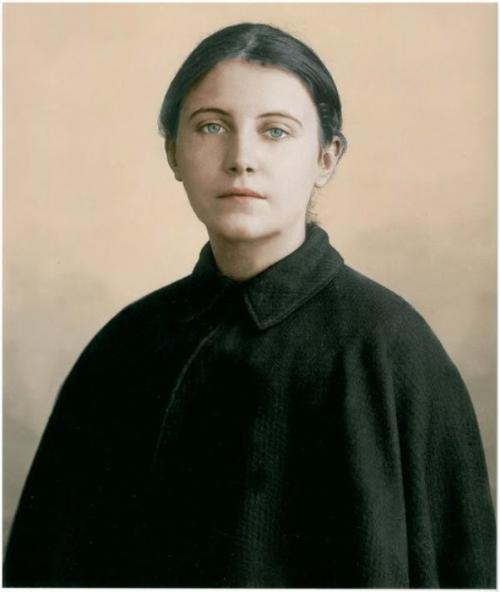
"Who is St. Gemma Galgani?,"...
.....you might be asking yourself. I certainly understand because I was asking the same question close to thirty years ago when I was still a young seminarian at St. Charles Borromeo in Philadelphia. When I first began my career at St. Charles I had met a seminarian, who was in one of the years below me. I believe he was in First or Second College. And somehow we got on the conversation of Padre Pio, whom I had a great devotion to at the time . . . and still do . . . . maybe I gave this seminarian a holy card of Padre Pio, I do not remember the exact circumstances beyond that but he asked me a very simple question, "Have you ever heard of St. Gemma Galgani?" Well, to be honest, no, I had not heard about St. Gemma Galgani. This seminarian went on to tell me what he knew about St. Gemma.
Certainly, the thing that piqued my interest was the fact that she had the Stigmata of Our Lord. Back then, keep in mind, this was before the Internet was available to the masses, so to speak. So, information was not as readily available nor certainly as easy or as quickly to obtain as it is now with the advent of search engines like Yahoo and Google. So I found out information about St. Gemma the old-fashioned way: I went down to the library and I looked up some information about our dear St. Gemma. I found out that she wanted with all her heart to become a nun. But due to health issues and other factors, she was not able to fulfill her dream of joining a religious order. I also learned that she received the gift of the Stigmata. In other words, she bore the Wounds of Our Lord after the Crucifixion. And, finally, I learned that she had a love for the Cross of Our Lord, a love for His Sorrowful Passion. Through her suffering, she grew to appreciate the suffering that Our Lord suffered on our behalf, to atone for our sins.
Certainly, all of these things were very impressive. St. Gemma has so much to teach to each one of us, but only if we will take the time to listen about Our Lord's Passion and His Cross. St. Gemma can teach us, yes, but again, this will take place only if we make the point to listen and pay attention.
The lesson that St Gemma wants to teach us is that we should run to the Cross and not run away from the Cross.
So often in life we do everything we can to avoid the crosses in our lives. We do not want to suffer. We do not want to bear pain. We do not want to deal with negative things in our life. And all of this, quite frankly, is understandable. None of us wants to deal with pain and suffering. And, yet, St. Gemma teaches us that in every life there is joy and yet there is also suffering. And St. Gemma shows us the gift of dealing with suffering and pain when it does come into our life. Because it is through our pain, our misery, our trials and tribulations, . .. it is through these things that we get a small glimpse into what Our Blessed Lord suffered on our behalf: He dealt with pain, with loss, with rejection, with humiliation, with suffering. . . . He dealt with everything that we deal with in life . . . and more! Thus, we learn from Our Lord how to be patient with our suffering. This is the lesson that St. Gemma learned and this is the lesson that St. Gemma teaches us . . . if only we make a point to pay attention. You see, suffering is a part of life. Each one of us will deal with tragedy at one point or another. Each one of us will have to endure pain. Each one of us may have to endure humiliation and suffering at some point or another. And, as stated earlier, it is our first reaction to run from these things. And, yet, Our Lord did not run when He was faced with suffering, with rejection, with pain, with misery. He accepted it and moved forward. So, too, we must embrace our own personal crosses in life. It is often through the our crosses that we not only grow stronger but also learn from them as well.
On a personal level, St. Gemma has been so good to me. As I moved through my years of the seminary, and courses and course-work seemed to get more and more difficult, I could always feel St. Gemma praying for me and sending her heavenly assistance to me in times of need. She pointed out Christ to me in His Passion. She helped me to appreciate my own personal crosses as never before. And she assisted me when I asked her to pray for me. In St. Gemma, I felt as though I had a special friend in Jesus. Ever since I learned about her, she has become very dear to me.
Some people question why we should have devotion to the saints. It is a fair question and my answer would be a simple one: the saints help to inspire us to greatness; the saints lead us closer to God not only through their words but also through the way in which they led their lives; and, finally, the saints become our friends, our companions on this journey called life. St. Gemma has indeed become a very dear companion to me on my Christian journey. She has assisted me when I found myself in times of difficulty. She led me closer to God through her inspiration. She has helped me to find the courage and the strength to stay close to the Cross of Our Saviour and to not run away. "

The Funny Pharmacy
Proverbs 17:22
A joyful mind maketh age flourishing: a sorrowful spirit drieth up the bones.



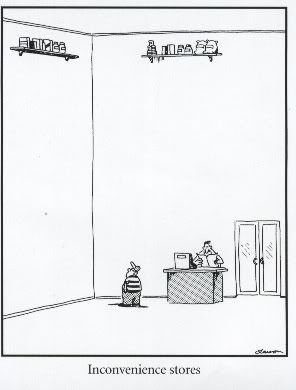




Was the Council that John the XXII called also heretical because of the results of his heresy?
The Council was not automatically heretical, but was not an Ecumenical Council of the Catholic Church, because only the Pope can call such a Council.
Is it your opinion that because of their acquiescence regarding John XXII the Bishops, and in turn the clergy throughout the Church, therefore shared in the heresy as if a virus spread throughout the whole Church?
Actually they became schismatics for accepting a man as Pope, who indeed was not Pope.
Is it your opinion that if a priest once celebrated the Novus Ordo then he was forever heretical?
I hold that the celebration of the Novus Ordo Missae is an act of heresy, because of the problems noted by Cardinals Ottaviani and Bacci, as well as the invalid form of consecration of the wine used in the vernacular in most languages until a few years ago. (They translated pro multis as for all, which is a false invalidating translation.) A priest can renounce his heresy, but may not function as a priest until reconciled by the Pope.

Is God Chastising Us?

First the Houston area gets his with Hurricane Harvey. At one point an area the sieze of Lake Michigan was flooded. Next Hurricane Irma hits Florida. Mexico gets hit with an 8.1 Earthquake. Then Hurricane Katia hit Mexico. And now, as of this writing, Hurricane Jose is in the Atlantic being tracked.
Is God chastising North America for its sinfulness? Many speculate that God is chastising us for our sins, but whose sins?
Let us go to the book of Jonas. Read the first chapter and let us see who was being chastised and why. “And they said every one to his fellow: Come, and let us cast lots, that we may know why this evil is upon us. And they cast lots, and the lot fell upon Jonas.” (Jonas 1:6) Jonas, the man God called upon to rebuke Nineve was the cause of the chastisement of this ship. And why was Jonas the cause? The reason is simple, Jonas was disobeying God. Instead of looking around at the sins of others like the Pharisee in the parable (Luke 18:10-14), we should look into our own hearts. Are we doing all God is asking of us? This is a good thing to think about tomorrow in your time of prayer. Let us come before God and ask Him straight out: “Lord, I desire to do Your will. If I am not where You want me to be, show me the path to Your holy will. Give me the strength to make whatever sacrifices You ask of me.” It would be good to follow with the Lord's Prayer, putting an emphasis on the world Thy Will Be Done.
It would be good to open the Scriptures and read Matthew 19:16-22. Meditate on the call Jesus gave to this man and his response. “Jesus saith to him: If thou wilt be perfect, go sell what thou hast, and give to the poor, and thou shalt have treasure in heaven: and come follow me. And when the young man had heard this word, he went away sad: for he had great possessions.” (Matthew 19:21-22)
What obstacles are we placing between our own self and God's holy will?
The purpose of mortification is to remove all obstacles between our self and God's will, especially in coming to Him in prayer and performing our work and duties. “And if thy right eye scandalize thee, pluck it out and cast it from thee. For it is expedient for thee that one of thy members should perish, rather than that thy whole body be cast into hell.” (Matthew 5:29) We all have things we need to pluck out of our lives. Let us come to God and ask Him to help us remove these obstacles to doing his will.
“And I sought among them for a man that might set up a hedge, and stand in the gap before me in favour of the land, that I might not destroy it: and I found none. And I poured out my indignation upon them, in the fire of my wrath I consumed them: I have rendered their way upon their own head, saith the Lord God.” (Ezechiel 22:30-31) God is looking for a few good men to set up that hedge. That is to come before Him and beg of Him to pour forth graces upon the land and its people and bring them to repentance and conversion.
Now how can we do this, if we have not repented and converted our own selves?
“We must first be purified and then purify others; be filled with wisdom and make others wise; become light and give light; be near to God and lead others to Him; be sanctified and sanctify; guide others by the hand and counsel them with knowledge.” (Saint Gregory Nanzianzen)

The Pope Speaks
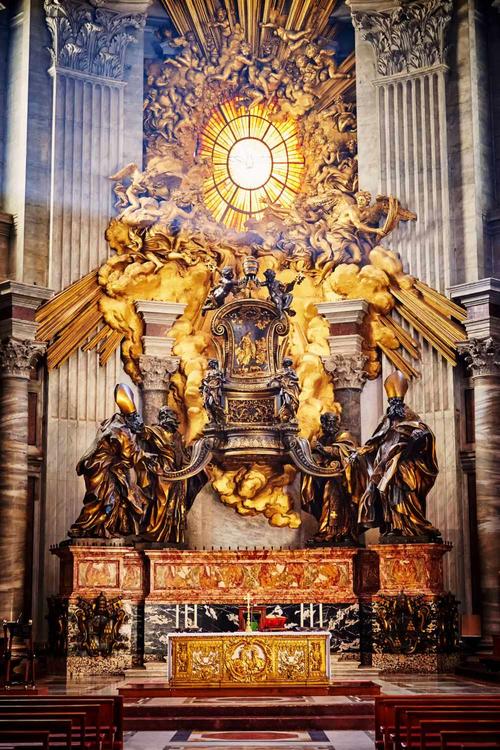
We Do Not Need A Distraction
There is many good 'fights' that can distract us today, but in some cases, these good fights are doing nothing to save our own souls. For example some of us are spending hours fighting abortion and forgetting to set time aside for just "sitting at the feet of Jesus". They got too busy serving!
Look at the story of Martha and Mary:
“But Martha was busy about much serving. Who stood and said: Lord, hast thou no care that my sister hath left me alone to serve? speak to her therefore, that she help me. And the Lord answering, said to her: Martha, Martha, thou art careful, and art troubled about many things: But one thing is necessary. Mary hath chosen the best part, which shall not be taken away from her.” (Luke 10:40-2)
Many of us have been undertaking a fight against the Supreme Court who is declaring homosexual unions as marriages and yet in our own homes..our own marriages we are allowing things to be there that threatens our relationship with our mates and our children. We got so busy in the "war" we overlooked the skirmishes right in our own homes.
Still others waste time on trying to figure out what the Third Secret of Fatima contains. But take no time to find the hidden treasures in scriptures and spiritual books that save the soul.
"My son, if thou wilt receive my words, and wilt hide my commandments with thee, That thy ear may hearken to wisdom: Incline thy heart to know prudence: For if thou shalt call for wisdom, and incline thy heart to prudence: If thou shalt seek her as money, and shalt dig for her as for a treasure: Then shalt thou understand the fear of the Lord, and shalt find the knowledge of God. Because the Lord giveth wisdom: and out of his mouth cometh prudence and knowledge." (Proverbs 2:1-6)
We are not choosing the best part, the one thing that is necessary. What we ARE doing is we are allowing ourselves to be distracted by others things that although are important, have pulled us away from taking care of our own spiritual life. We have many excuses why we think we need to delve into these matters. Some say they need to be informed, (and they should be). Others say these matters are life and death matters, (and some are), but some of us have lost our focus on something that is more important, that is the matter of if our soul is going to heaven or hell.
Jesus said: “And fear ye not them that kill the body, and are not able to kill the soul: but rather fear him that can destroy both soul and body in hell.” (Matthew 10:28) Saint John Vianney says: “We shall find out at the day of judgment that the greater number of Christians who are lost were damned because they did not know their own religion.” In reading various posts and a very few articles (I find I do not have time to waste on these things) one sees that people do not know their own religion. If they knew the Catholic Faith better, they would not make some of the statements they do.
Jesus tells this story:
"Not every one that saith to me, Lord, Lord, shall enter into the kingdom of heaven: but he that doth the will of my Father who is in heaven, he shall enter into the kingdom of heaven. Many will say to me in that day: Lord, Lord, have not we prophesied in thy name, and cast out devils in thy name, and done many miracles in thy name? And then will I profess unto them, I never knew you: depart from me, you that work iniquity."(Matthew 7:21-23)
Someone may say "Lord, Lord, we prayed the rosary in front of an abortion clinic, we spoke out against same sex marriages, we were "prophesying in Christ" name doing "many miracles" etc. These are good things, and you may feel comfortable that because you are doing those things, you are making your way toward heaven. But Jesus said, "I never knew you: depart from me." Why? What did they do wrong? We find the answer in the last part of His statement...."Ye that work iniquity". They were so busy doing all these other things that they did not spend time saving there own soul. They were, like Martha, so busy in the kitchen that they did not take the time to do the "necessary thing", the "best thing", and that is sitting at the feet of Jesus and allowing Him to, as King David says, "search our heart O God, and know my heart: examine me, and know my paths and thoughts. And see if there be in me the way of iniquity" (Psalms 139:4)
We need to examine our self and reorder our priorities in the manner God would have us order them. And our very first priority is to become a saint. And this is our first problem.
There are two classes of people in the world, saints and sinners. Some act as if there are three classes of people, saints, venial sinners and mortal sinners. Saint John Vianney says: “In consists of three classes: the first is composed of those who are entirely for the world; the second are those who are entirely for God; and the last consists of those people who would like to belong to the world without ceasing to belong to God.” He then concludes: “No, my friend; you either belong wholly to God or wholly to the world.”
“He that is not with me, is against me: and he that gathereth not with me, scattereth.” (Matthew 12:30; Luke 11:23) There is no middle ground for mediocrity. What leads to this false idea is the thought there is five last things: death, judgment, purgatory, heaven and hell. Everyone adds purgatory in practice to the four things and aims to sneak in the back door. They work at being just holy enough to not be in the state of mortal sin at death and nothing more. There are actually only four last things. They are death, judgment, heaven and hell. The road to heaven goes through purgatory. We should purge ourselves of all that is not of God here in earth rather than leaving it for the next life.
Saint Alphonsus says: “To be pleasing and acceptable in the sight of God, it is not enough merely to believe all that our holy faith teaches us; we must, moreover, regulate our life in accordance with our belief.” The principles of the spiritual life are actually quite simple, such as this one here. When we study the Commandments of God and the Church we learn how to live. Jesus said: “If you love me, keep my commandments.” (John 14:15)
Thy Will Be Done
With four simple words from the Lord's Prayer, we have a summary of the Christian way of life. As Christians, our life must be lived in total conformity with the will of God. Without this conformity to the will of God, we are lost. We can say Rosaries morning, noon and night, but will not be saved. We can assist at daily Mass and receive Holy Communion daily, but we cannot be saved without conformity to the will of God. We can fast twice in the week, like the Pharisee. (Luke 18:10-14) We can do all of these external acts of religion, but if our heart is not right with God, then these are worthless for our salvation.
“And I will give you a new heart, and put a new spirit within you: and I will take away the stony heart out of your flesh, and will give you a heart of flesh.” (Ezechiel 36:26) My friends, these distractions have hardened our heart, especially when our reaction to them is false. It is time to check into God's hospital for this heart surgery.
First of all notice, that this is the work of God, which we cooperate with. He will not drag us into surgery, we must come and check in and sign the consent forms for this surgery. And this is actually very simple. We simply say along with Saul, who became Saint Paul: “Lord, what wilt thou have me to do?” (Acts 9:6)
There are two things we need to do, as we were reminded by the Blessed Virgin Mary at Fatima, prayer and penance. Unfortunately, Fatima has become another distraction with speculation about the Third Secret. If there is anything we truly need to know in that secret, God will have it provided to us in a clear and certain manner. Until then, let us not be distracted by these side issues, they only harden our hearts. Another distraction is the Secret of La Salette, which the Church has placed on the Index of Forbidden Books. Pope Pius IX was questioned on this secret and provides us a quote from Scripture, stating that this is all we need to know: “Unless you do penance, you shall all likewise perish.” (Luke 13:3,5)
Penance And Mortification
The acts of penance and mortification are the same. Penance is performed to atone for our sins, while mortification is for those who are not penitents. Anyone who has committed a mortal sin and repented is a penitent. One priest observed early last century that eighty-five percent of the saints were penitents.
The purpose of mortification is to remove all obstacles to prayer and performing the duties of our state of life. Jesus came back to Sister Lucy after Fatima and told her to remind people that the main penance He wanted people to do is to perform the duties of their state of life. The first duty of all people is prayer. So our penance and mortification should be directed to removing all obstacles to prayer. And one of those obstacles are all of these distractions. How many have been fighting to end abortion for over four decades now? How many are now fighting homosexual marriage? These are side issue.
The problem is that we get so involved in discussing and fighting the evils in the world, that we never address the evils in our own selves. We truly have become our own worst enemy. The devil doesn't care how he gets us, so long as he gets us. And he will get us busy about many things, while not even considering the only thing that is truly important.
Now there are thing we all can do, which will help us determine the mortification's we need to undertake. The first is to take a week and track how we make use of our time. Some things are obvious, such as spending a third of our time sleeping. Those with a job will find that portion of time also dictated for us. What do we do with the time that is left over, that is our free time? Some will be spent in necessities of life, such as eating, etc. How many minutes in a week do we spend with God in true prayer from the heart? “With desolation is all the land made desolate; because there is none that considereth in the heart.” (Jeremias 12:11)
We have a little over ten thousand minutes each week. Are we using them profitably? After heart surgery our doctor gives us a regimen to follow and a special diet as well as medication. The regimen we need to follow will require us to reallocate our time. The average American spends 1,500 minutes in front of a screen, computer, television, tablet, phone.
One day the Lord said to St. Teresa: “Oh, how gladly would I speak to many souls! But the world makes so much noise in their hearts that they cannot hear My voice. Would that they might retire a little from the world!” We need to get to the point we spend at least and hour each day in true prayer from the heart. And that is only 560 minutes. We have the time, all we need to do is take it from our distractions.
And so our first mortification is to use our time wisely and stop wasting it on distractions, which can be found anywhere.
“Therefore, behold I will allure her, and will lead her into the wilderness: and I will speak to her heart.” (Osee 2:14)
Prayer
Whereas we take the lead in penance and mortification and perform them with God's help, in prayer we allow our self to be led into the wilderness where He will speak to our heart. What we do is to clear the time and find a quiet place away from the noise and distraction of the world so that the Holy Ghost can speak to our hearts.
Now we should not come unprepared. Saint Teresa of Avila used a book to guide her meditations for almost two decades. We need to bring good solid spiritual books with us, that will instruct us. The first book is Sacred Scripture. We have already seen many beautiful quotes from Sacred Scripture in this article. Next are the works of the Saints that will instruct us in how to live the Christian way of life.
There are several books to be recommended. The School of Christian Perfection is an excellent summary of Saint Alphonsus' spiritual teachings. Also his work on Charity, which is a commentary on the 13th chapter of first Corinthians. Treatise on the Spiritual Life, which is a summary of Saint Francis de Sales spiritual teaching and the only work that has anything substantial on conversion.
The main thing we need to remember in our time of prayer, is that it is God's time. He may inspire us to consider some point. If so, let us consider that point. However, let us come prepared with something to read slowly and meditatively. When a point strikes us, let us stop and savor it. And let these points lead us to make resolutions to carry into our life.

New Videos from our YouTube Channels

Fakers and Frauds

What Are a Catholic's Duty to the Church

Studying the Saints

Oldies But Goodies!
25th Sunday-2010

Living Catholic: Human Authority in the Hands of a Skillful God

Each of us has a multitude of character deficiencies that need to be perfected. God uses those in authority to do this.
"Folly is bound up in the heart of a child, and the rod of correction shall drive it away." (Proverbs 22:15)
God assures us that the heart of one who is in authority is in His hand, and that He turns it in the same way He does a winding river by using the pressure of the current and time.
"As the divisions of waters, so the heart of the king is in the hand of the Lord: whithersoever he will he shall turn it." (Proverbs 21:1)
God's Persistence in Character Development:
God is even more concerned that our character become like Christ Jesus then He is in which "instruments" He uses to accomplish this. Therefore, if we push away or get out from under the reproofs and authority of our parents, God only has to raise up new "tools" to chip away at the rough edges of our character.
Two examples:
- A teenager would say in disgust, I'm sick and tired of taking orders from my parents! I am going to run off and join the military!"
- A girl would often use marriage as a way to escape the pressure of parents'-only to have god begin to begin to use her husband to carry on His work of character development.

Catechism Catch Up!: Description of the Church; The House of God
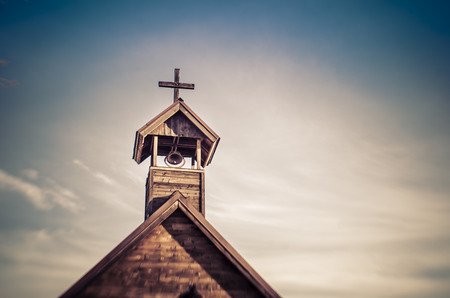

Introduction:
As we have said in Lesson 11 On the Church, the word Church means a calling forth. In common Scripture usage the word signifies "the Christian society only, and the assembly of the faithful; that is, of those who are called by faith to the light of truth and the knowledge of God, that, having forsaken the darkness of ignorance and error, they may worship the living and true God piously and holily, and serve Him from their whole heart. in a word, The Church, says St. Augustine, consists of the faithful dispersed throughout the world" -The catechism of the Council of Trent.
Names given the Church in Scripture
I. The House of God
That thou mayest know how thou oughtest to behave thyself in the house of God, which is the church of the living God, the pillar and ground of the truth. I Timothy 3:15
Now therefore you are no more strangers and foreigners; but you are fellow citizens with the saints, and the domestics of God, Built upon the foundation of the apostles and prophets, Jesus Christ himself being the chief corner stone: In whom all the building, being framed together, groweth up into an holy temple in the Lord. In whom you also are built together into an habitation of God in the Spirit. Ephesians 2:19-22
St. Paul calls the Church, that is the gathering place of the Church as the "house of God." in the Old Testament the Tabernacle (A tent. A temporary habitation), was described as the House of God by God Himself when he was speaking to Moses concerning the Law.
Thou shalt carry the firstfruits of the corn of thy ground to the house of the Lord thy God. Exodus 23:19
Later the Temple was described as the House of God by King Solomon.
But now the Lord my God hath given me rest round about: and there is no adversary nor evil occurrence. Wherefore I purpose to build a temple to the name of the Lord my God, as the Lord spoke to David my father, saying: my son, whom I will set upon the throne in thy piece, he shall build a house to my name. III Kings (I Kings) 5:4-9
In the New Testament we as Catholics become the Temple, the House of God.
Know you not, that you are the temple of God, and that the Spirit of God dwelleth in you? But if any man violate the temple of God, him shall God destroy. For the temple of God is holy, which you are. I Corinthian 3:16-17 (again, see I Timothy 3:16)
A. A house has furniture.
The Temple/House of God in the Old Testament had furnishing which represented many things pertaining to us as Catholics.
Ark of the Covenant and the Mercy Seat (cover on top of the Ark of the Covenant)
A symbol of God’s law, the Ark was made of wood covered with gold. The Ark was the throne of God where His glory rest on the Mercy Seat (top), a symbol of His mercy. The sacrificed blood was sprinkled on the Ark to cover the sins of the people.
The phrase “Mercy Seat” also means “propitiation.” Jesus is the propitiation for us today (Romans 3:25; I John 2:2.) His blood was shed to cleanse our sins. We come to God through Him and offer our spiritual sacrifices (I Peter 2:5,9).
2. The Inner Veil
The Inner Veil hung between the Holy Place and the Holy of Holies and was passed only once a year by the High Priest on the Day of Atonement (Leviticus 16).
Hebrews 10:19-20 teaches that this Veil represents Christ’s body which was given for us on the cross. When He offered up His spirit, the veil in the temple was torn from top to bottom, thus allowing us to come at any time into God’s presence (Matthew 27:50-51).
3. Altar of Incense
Incense was continually burned at this altar that stood before the veil separating the Holy Place from the Holy of Holies. The High Priest was to make atonement on its horns once a year before entering the Holy of Holies.
The Altar of Incense was a symbol of prayer. Christians are to be continually in prayer (Romans 12:12).
4. Table of Showbread
A symbol of God’s providence, the Table held the twelve loaves of bread that were a reminder that the tribes were constantly in the presence of God and that God saw all that they did (Leviticus 24:5-9). The bread also reminded the people that God fed His people.
God provides what we need (Matthew 6:25-34). We as Christians are daily in God’s presence. We are to “feed on” God’s truth (Matthew 4:4). Jesus is the Bread of Life and we feed on Him when we partake in the eucharist. (John 6:35)
5. Golden Lampstand
Symbolizing light from God, the intricately patterned Lampstand was to give light continually, fueled by clear olive oil (Exodus 27:20)
Rev. 1:12-20 indicates individual parishes in a Diocese are represented by golden lampstands. Jesus is the light of the world (John 8:12). Christians are to be a light to the world, also (Matthew 5:14).
6. Bronze Altar
The Bronze Altar stood in the courtyard of the Tabernacle. This is where the animals were sacrificed to cover the sins of the Israelite people.
Jesus’s death on the cross was the ultimate sacrifice for our sins. He is pictured in all the sacrifices God commanded Israel to bring (Leviticus 1-5; Hebrews 10:1-14).
7. The Bronze Laver
It was here at the bronze laver that the priests washed their hands and feet before entering into and coming out of the holy place. The laver was made from the bronze mirrors of the women and filled with water for the continual cleansing of the priests as they ministered in the work of the Lord. (Ex 30:17-21)
It represent our own need for a cleansing as well. (Hebrews 10:22, John 7:38)
B. A House has a Father
"The Church is called a house, because it is, as it were,one family governed by one father of the family...."-Catechism of the Council of Trent
Not only do we have a God that is our Father, (Matthew 6:9 "Our Father who art in heaven,"), but he has given us fathers here on earth. That is the Pope and our Priest. The Pope being a Prime minister for God here on earth and one who should be considered our father on earth. "And he shall be as a father to the inhabitants of Jerusalem, and to the house of Juda". Isaias (Isaiah) 22:21b. St. Paul calls himself a father to the people of the Corinthian Church.
For if you have ten thousand instructors in Christ, yet not many fathers. For in Christ Jesus, by the gospel, I have begotten you.
I Corinthians 4:15
C. A House has a Mother
The Blessed Virgin Mary is our Mother.
When Jesus therefore had seen his mother and the disciple standing whom he loved, he saith to his mother: Woman, behold thy son. After that, he saith to the disciple: Behold thy mother. And from that hour, the disciple took her to his own. John 19:26-27
St. Epiphanius, wrote “Against Eighty Heresies” where he affirmed: “Eve was called the mother of the living ...after the fall this title was given to her. True it is...the whole race of man upon earth was born from Eve; but in reality it is from Mary the Life was truly born to the world. So that by giving birth to the Living One, Mary became the mother of all living”
According to St Irenaeus, Mary "became a cause of salvation for the whole human race" (Haer. 3, 22, 4; PG 7, 959), and the pure womb of the Virgin "regenerates men in God" (Haer. 4, 33, 11; PG 7, 1080). This is re-echoed by St Ambrose, who says: "A Virgin has begotten the salvation of the world, a Virgin has given life to all things" (Ep. 63, 33; PL 16, 1198), and by other Fathers who call Mary "Mother of salvation" (Severian of Gabala, Or. 6 in mundi creationem, 10, PG 54, 4; Faustus of Riez, Max. Bibl. Patrum, VI. 620-621).
In the Middle Ages, St Anselm addressed Mary in this way: "You are the mother of justification and of the justified, the Mother of reconciliation and of the reconciled, the mother of salvation and of the saved" (Or. 52, 8; PL 158, 957), while other authors attribute to her the titles "Mother of grace" and "Mother of life". (1)
D. A House has Brothers and Sisters
St. Paul tells St. Timothy...
An ancient man rebuke not, but entreat him as a father: young men, as brethren: Old women, as mothers: young women, as sisters, in all chastity. I Timothy 5:1-2
There are verses after verses showing that those in Christ are brothers and sister. Not only is Jesus our brother, but all of us are spiritually related to each other.
So today ask yourself "Am I acting like I am the Temple of God, a House of God?" Is some of your furnishing, like the altar of Incense, which is a prefigurement of prayer to God, is it covered over with a sheet or become real dusty from lack of use? Scripture does say "My house is a house of prayer" Matthew 21:13. what other furnishings have been neglected?
Are you under the Authority of your "Father" and "Mother"? Or are you being rebellious and doing your own thing? Do you pick and choose what you want to obey.
Do you treat your brothers and sisters with the respect and love they deserve? St. John says, "For he that loveth not his brother, whom he seeth, how can he love God, whom he seeth not?". I John 4:20
Just somethings to think about.
(1) https://www.ewtn.com/library/papaldoc/jp2bvm63.htm

The School of Christian Perfection
$6.50
To be pleasing and acceptable in the sight of God, it is not enough merely to believe all that our holy faith teaches us; we must, moreover, regulate our life in accordance with our belief. Pico of Mirandola says: “It is certainly great folly not to wish to believe the Gospel of Christ; but it would be greater folly still to believe it and to live as if you did not believe it.”

The Rosary Encyclicals of Pope Leo XIII
$14.95
Pope Leo XIII, who reigned for over a quarter of a century, following the second longest reigning pope in history, Pope Pius IX, has come to be known as the Pope of the Rosary. During his pontificate he wrote twelve wonderful Encyclicals on the Rosary, encouraging Catholics to recite the Rosary with devotion and profit for their souls. Leo saw the Rosary as a cure for the ills of today. If we follow his advice and recite the Rosary with true devotion, we will see a cure of our own spiritual ills. From curing our own spiritual ills and working to become saints, we can influence those around us to do the same and bring about restoring the world to where it ought to be.

The Great Problem for each one of us to solve is: How shall I travel along the journey of life that I may attain the happiness of Eternal Life? The solution of this problem is attempted in these short sermons. In a few words the solution is: Avoid evil and do good. The aim of the author was to tell the truth clearly and clothe the important old subjects in plain language that would be easily understood. PAPERBACK $16.99
For other Books...
Brother Hermenegilds Spiritual Bookshelf
Pope Michaels Books
Christ the King Library

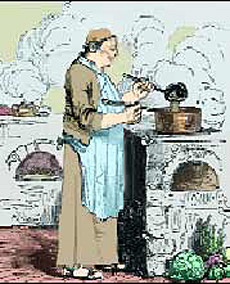
The Fraters' Kitchen
PARMESAN ROASTED SQUASH
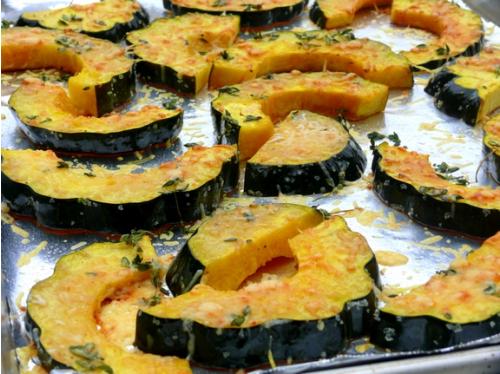
Bring some summer sunshine into your life with the vibrant orange flesh of winter squash like kabocha or acorn! A touch of heavy cream, Parmesan cheese and herbs easily turns them into a simple but tasty side dish.
To me, roasting squash is king.
Roasting caramelizes their natural sugars bringing out their best qualities in a way I don’t think boiling can compete with.
You can use just about any herb here – thyme, sage and oregano – dried or fresh – whatever you like or have on hand.
In the fall and winter squash is one of the best.
Prep Time: 5 minutes
Cook Time: 55 minutes
Total Time: 1 hour
Yield: 4 servings
A touch of heavy cream, Parmesan cheese and herbs easily turns winter squash into a simple but tasty side dish.
INGREDIENTS:
2 small kabocha or acorn squash (about 1 pound each), halved lengthwise, seeded, and bottoms trimmed to lie flat if needed
coarse salt and fresh black pepper
1/2 cup heavy cream
8 sprigs dried oregano or fresh thyme
1/2 cup grated Parmesan cheese
extra-virgin olive oil, for drizzling
INSTRUCTIONS:
Preheat oven to 375 degrees F. Place the squash cut side up on a large, rimmed baking sheet or roasting pan. Season with salt and pepper. Divide the heavy cream and herbs among each one.
- Bake until squash is tender - test by piercing with the tip of a knife or a fork - about 35 to 40 minutes.
- Remove the pan from the oven and sprinkle with Parmesan. Bake until cheese is melted and lightly golden 10 - 15 minutes more.
- To serve drizzle with extra virgin olive oil.
For more information check this out! Parmesan Roasted Squash

Some Saints In My Life

Dear soul, it is a joy to write to you again. This month I write words which have been somewhat difficult to gather, as the topic which was presented to me proved to be delightfully broad. I was asked this month simply to write to you regarding my favorite saint.
Ah, such a simple sounding request! The answer, though? Where does one start?
Of course, it goes without saying that saintly devotion will rightly turn first toward the Mother of God. One could spend the rest of one's life speaking and writing of the glories of our Lady and yet not even make a beginning in telling of the graces she has received from her divine Son.
So it is not for lack of devotion or lack of subject matter that I decided not to write directly concerning our Lady, although she will certainly not be far away, as you will see.
No, my decision was simply to set off on an inventory of the many saints I have encountered through reading, through prayer, or through happenstance in my life, and to choose from among them one who spoke most clearly to me at this time. Then I would write to you, dear soul, about that saint. That sounded fair enough.
Of course, it should come as no surprise that even that small inventory of saints proved to be a monumental task. But why shouldn't it? It stands to reason. The communion of the saints is enumerated among the articles of the Faith, after all.
While I was a child, it was a common question among the kids: What is your favorite color?
The answer was easy for me, at least when I was four years old: orange. As I grew older, though, the question became more difficult to answer with such an absolute certainty. While there is absolute truth which does not change, such is the way of mere subjective preferences. My inclination toward a favorite color found itself bound up with the increasing experiences which I would have with the wonders of God's creation. And while orange was still a fine color to be found in the fruit which bears that name, I would be much less pleased with a splash of orange mold growing on the bread I had intended to have with my morning tea.
As an analogy, the same can almost be said for particular saints, save for the fact that you will never find a saint who is unwelcome as mold on your morning bread. What you will find, though, is that in certain situations, in certain times, and in certain places, your mind and your heart will naturally be drawn to certain particular saints with a special devotion.
When I was a teenager, I would occasionally go hunting with my grandfather. It was always fairly informal hunting, just going out for small game, maybe enough to have a good dinner if we were successful. We would get up before dawn to be out in the woods by the time the sun was getting above the horizon.
I can solemnly attest that even though I very much did enjoy doing things with my grandfather, I was also not exactly inclined to getting myself up so early. Getting up before dawn on a non-school day simply was not to be found on the list of things I was highly excited about doing as a teenager.
And yet, I did it. My grandfather and I would take an exceptionally small breakfast, which often consisted of a simple piece of bread and a glass of water. It would be enough to keep us going, and that's all we really needed. To this day, I can see the dull color of the old tin cup I would use to get myself my breakfast water. Again with the colors, but they do remain in the mind.
We would put on our jackets, get our gear, and head out towards the woods, with the sun just beginning to peek over the horizon.
Late summertime dawn near the woods. Ever been outside for one of those? It's a magical time for natural colors. It's reminiscent of sunset, but it's also so very different. The dew still on the ground, the world still sleeps quietly. Maybe there's a patch of blue-grey fog here or there that you know won't last long once the sun's fully up. The sky takes on a wonderful gradient of color that words really can't do justice to. I could see deep blues, shading all the way to a pale yellowish pink, with a good dash of my old favorite, orange, right in there.
And the sun itself! When you've got an unobstructed sight-line to the horizon, and the atmospheric conditions are right, you can look right at the disk of the rising sun with your bare eyes without any harm.
My grandfather was not one to waste a great deal of words on many things, and so one might have been forgiven if they thought he didn't have an appreciation for beauty. Nothing could be farther from the truth, however. I think it was just that he understood that beauty - especially that everyday, natural beauty we so often don't take the time to see - is best appreciated in the very act of observing it, and to spend too many words on it is almost to cheapen it, to tarnish it in some way.
So when one day as we headed out towards the woods he simply told me, "Look," and motioned toward the rising sun, that is just exactly what I did. I looked. I saw the deep, indescribably orange solar disk that was going to be lighting us throughout that day as it began its journey across the sky. Again, the colors are still impressed in my mind, even though decades have passed since that day.
One remembers moments, passing, fleeting, and yet remaining with their colors. I can see the deep grey-brown of the still dewy earth as we stepped quietly through the woods. I see the muted beige of my grandfather's hunting jacket. I remember the green of the leaves on the trees, both the deciduous and the evergreens, vibrant, deep, alive. The mottled grey of a squirrel's pelt. The indescribable blue-green-almost-black and yet clear water down in the pond. The yellow of the ears of sweetcorn ready for the table.
Everything is shaded with its color, everything properly placed, wonderfully formed.
So if I was to be asked which color of all of those was my favorite that morning? How could I choose? Every one is my favorite.
So I am then asked to write to you, dear friend, about my favorite saint. Could I begin to divide one from another? No, that wouldn't do. There already are many catalogues of saints and their lives, and I don't think we stand in need of another one this month. So then certainly I must narrow down my focus a bit, and choose one from among the saints about whom I could write something.
Where to start? Well, why not just start with the sanctoral calendar for this month? That's always a good place to go for inspiration. The Church is a good mother and provides more than enough for such a consideration.
So, November first brings the feast of All Saints.
That did not help me to narrow it down much. A brief look over the rest of the month wasn't exceptionally helpful either in the immediate scheme of things. There are some wonderful feasts this month, to be sure! But... ah, which direction should I go?
I wasn't sure. It was time to take a walk.
For much of my life, I have found that taking a good walk is an excellent way of both clearing the mind of those things which are unimportant and of helping to organize those things which are important. When you can find the time in the early morning, when the rest of the world is still sleeping and the sun is just about trembling on the horizon, get your boots on and grab your walking stick. Head out with prayer, and you'll find yourself at that balance point where time is progressing inexorably into the new day and yet time itself seems to fall away and your mind and your heart are joined to so many other times, so many other walks, so many other sunrises. The decades fade into the background and once again there I am at the edge of the woods. The words of my grandfather, now fallen asleep in the Lord a quarter of a century past, sound in my ears just as strongly as they did when he first bid me simply to "look!"
At the same time, I am also transported to another walk I took. This one was several years after the last time I had ever gone hunting with my grandfather, although he was in my mind during that walk. This walk is painted in my mind with much more muted colors than the others. This walk is one I took in an early November, the year after my grandfather had died.
At that time I was in the seminary, living in a country far across the ocean from my own. The day was consistently overcast, as November days tend to be there. The daily schedule included a couple of substantial walks, as long as the weather would permit, and the walks proved even then to be a source of mental refreshment and a great opportunity for prayer.
As it was in the early days of November, I directed my steps toward the old village cemetery which was not far off. I thought it would do well to make a visit to the cemetery and to pray for the souls of those buried there, as well as for the souls of family, friends, and benefactors.
The memory of this particular walk is painted in broad strokes of grey fog and clouds, grey stones, grey walls. Nevertheless, there was - and is - a tenderness, a closeness to be felt when one offers suffrage for the repose of the souls of the faithful departed. I remembered the soul of my grandfather there in an especial way.
As I did so, I was overcome with a certain melancholy. It was sweet in a way, as it was occasioned by thoughts of family and friends, both still living and those who had passed. But there was also a sharp edge buried in the remembrance, and that was a keen sense of separation. A sense of ties which still bound, but which bound across impassable time, across unreachable distance, across even the passage death. For there I was, in a country which was not my own, imperfectly attempting to speak a language which was not my own. Everyone and everything I had known as a child and young man was across an ocean, unreachable except by great effort. Even all the colors of the walks of my younger days seemed to have bled out to a cold grey, and the sun itself was completely obscured by unrelenting grey clouds from its rising to its setting.
But yet... God was still here. The Faith was still the same. And I prayed in the cemetery where families I had never known laid those whom they loved, whose names I had never heard. And by the adoption of God, we all were family. By the waters of regeneration, we were born into a family even more real than that which our biology dictates.
My prayers finished, I continued my walk. It was a good day for walking, and there were many smaller paths to take in the area which would lead through fields and woods, not entirely unlike those which I knew back home.
I chose a small path which looked like it would lead around one of the local hills and come back around to the main road and walked along. My thoughts were diffuse and as yet unfocused, but I blessed the path as a chance simply to offer up to God all that I had, even my thoughts.
Now, one of the really neat customs which you will find in lands which (at least formerly) had been lands of faith, is the unabashed building of minor roadside shrines to various saints by landowners, or just by the local populace. These could be erected for some historical reason, or even for no more reason than someone's particular devotion. There were quite a few of these in the countryside near where I was living, and it was always neat to see them.
As I took the path which wound around the base of the hill that day, I noticed that there was such a small wayside shrine alongside the path, near where it met up with another small path which led off across a field toward another small village.
The little shrine showed a bit of age wear, but was obviously still cared for. Inside it's small covered arch was a depiction of Saint Joachim, father of the Blessed Virgin Mary, standing with his Daughter.
Now, I had long had a special devotion to Saints Joachim and Anne, for no other reason than I initially just liked their names when I first heard them when I was about four years old. I found out that they were the parents of the Blessed Virgin Mary and that just made me like them all the more.
As I looked at this little shrine to Saint Joachim, I noticed that the builder had put an inscription on it. It was written in the local language, but in English it meant, "Dedicated to Saint Joachim, the Grandfather of God."
I had to smile just a bit the first time I read that. "The Grandfather of God." To call someone God's grandfather sounded more than a little humorous to my ears. And yet... isn't that exactly who Saint Joachim was to become? For his most blessed Daughter, our Lady, is none other than the Mother of God. Saint Joachim is the father of the Mother of God, and therefore...
Now, you will find no liturgical or historic use of that title for Saint Joachim, and I think that is only proper. I don't agitate for any innovation in that sense of things. What I did find, though, was that that odd title spoke directly to me at exactly that moment.
For there I was, separated by space, by time, and even by life from my own family. I had just remembered the soul of my own grandfather while standing among the gravestones of people I had never met and yet who were by the Faith members of my own family, and I of theirs.
And here was Saint Joachim, grandfather of our Lord Himself, encouraging devotion even down to our day.
Our Lord Himself was pleased to be with His people. He was pleased to dwell with us, and in fact, to become fully one of us, a man like us in all things but sin. It is through Him that we are made true family. He, too, has a grandfather according to the flesh. By His grace, all natural bonds can be sanctified and elevated, the natural family becomes a type of His Church.
It was on that day, at that moment, that I thanked God and blessed Him in his angels and in his saints, most especially in Saint Joachim.
And I see that later this month we celebrate the Feast of the Presentation of the Blessed Virgin Mary, in which we remember the great mystery of Saints Joachim and Anne bringing their Most Holy Daughter unto the Temple of God at the age of three years. It has only occurred to me as I was gathering my thoughts to write to you that one of my most treasured holy images among those which have been given to me over the years is precisely one of our Lady at her Presentation.
What could have been the thoughts of Saint Joachim as he led her unto the Temple. What things did he hold in his own heart, this man who was - and is - the father of the Mother of God?
There are many, many more thoughts to be considered, I think. There is so much more we could talk about. But I think, dear soul, for right now, I should leave us right there.
We have only just begun to consider Saint Joachim in his history, I suppose. But do you see how it is that the Lord places different saints to speak to us at different times? The saints, unlike the colors of nature, will never fade in their resplendence. So please join me in two things this month, won't you?
First, please pray for the holy souls. Make visits to cemeteries if you are able. Remember the souls of your own family and friends, and all those who have gone before.
And secondly, rejoice on the Feast of the Presentation. Stand with the holy parents of the Mother of God, and witness her entrance into the Temple of Almighty God. She still serves in his presence to this very day, she who became the very Ark of the New Covenant.
Pray for me as I pray for you.

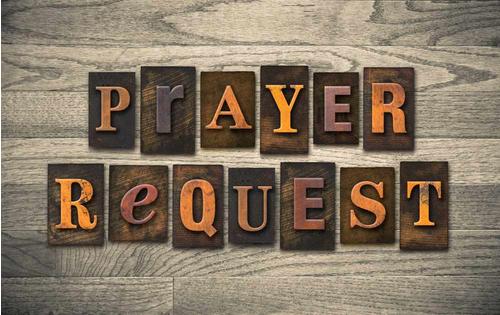
-
Pray for Frater Francis Dominic as he teaches Catechism through the web site. We are still working on our new Website where people can listen or watch Catechism lessons, take tests, and get a certificate of completion. It will take a long time to finish it but you can see the work that we are doing and we will keep you updated on when it is completed. Check out all of the construction going on over there at Traditional Catechism.com
-
God is calling men to come fully into His service with us here at the Vatican in Exile. It will be a life of self sacrifice. And so we ask all to pray for these men, that they will surrender to this calling and also have the fortitude to undertake this sacred calling.
- Lord willing we will have a internet radio station up and running by the end of the year. Please keep that in your prayers. Also we are looking into possibly having a short wave program for those who are in areas like Africa who have no internet connections.
- Frater Francis has some material needs of his own. He is in need of two Cassocks and a suit. He will be out in the public a lot more visiting hospitals, counseling, Jail visits, doing funerals and weddings etc.
-
We are looking to buy land for a Church and a House of Prayer. Please pray with us in finding the right place. and if you feel led, to donate money for this project you can donate by Paypal, or make check or money orders out to Vatican in Exile.
-
We have been looking at Hermitages to put on the property we will eventually buy. The ones we have been looking at are perfect for what we want. Although we are not in the market for them as of yet, we are still wanting to have a plan.
- Lord willing, the first of January, we will be starting a Bible study and Catechism class here in the Topeka area. The plan is to go door to door and give out fliers advertising the class. We will start in our House of Prayer but from there start having mass somewhere that we can rent. Possibly the community center close by.
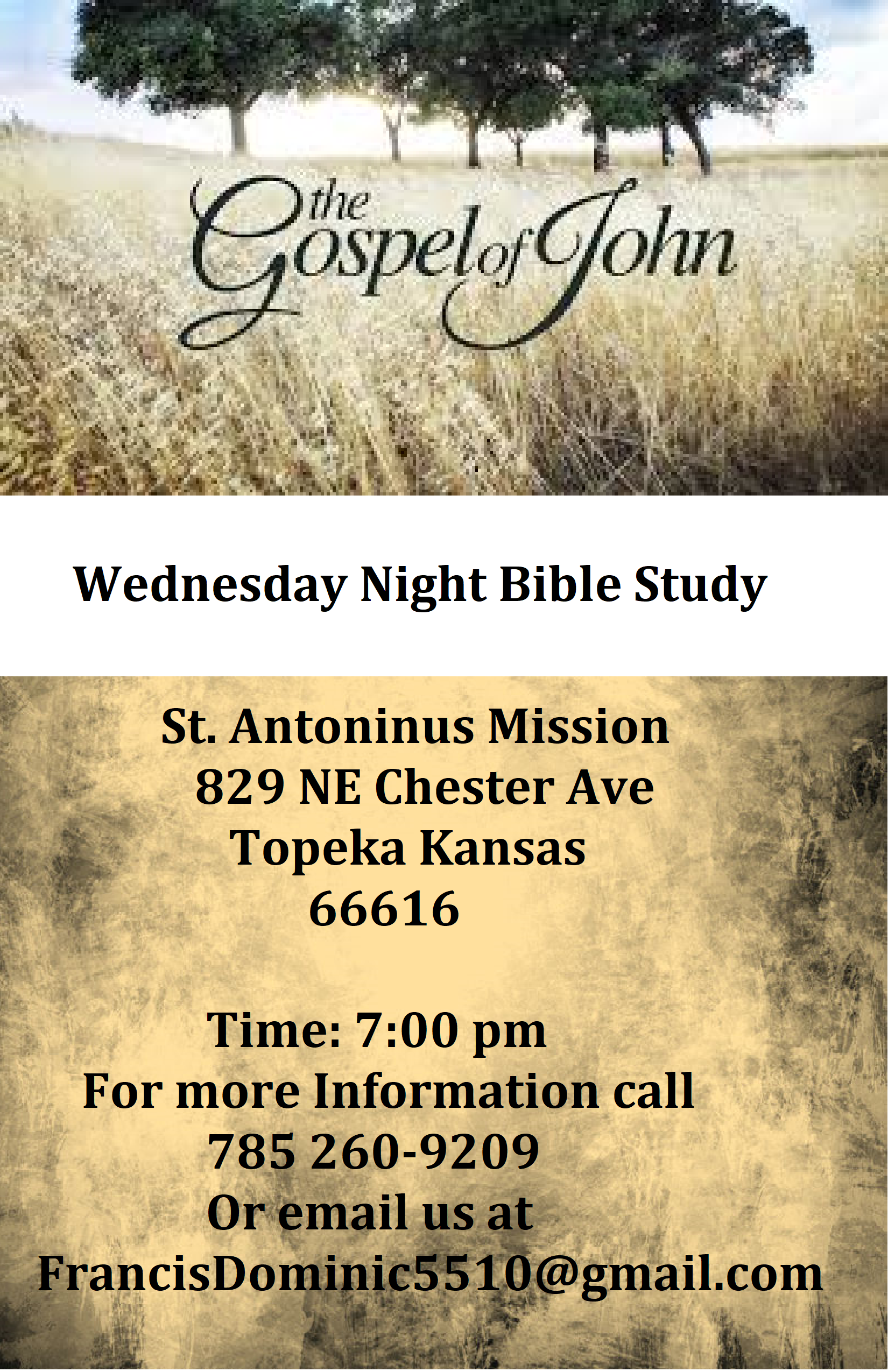
Every month we are very close with our budget. It takes money to be available to people in other areas as well as having supplies like rosaries, bibles, pamphlets, Catechisms etc for sharing with Non Catholics. At this time to stay comfortably out of the red we need 700.00 a month. Please read the message Giving to God's Work and then decide how you can give. Everyone should give something. It does not have to be much.


To Donate online go to:
Donations

To Donate by Mail:
Our address is
Vatican in Exile
829 NE Chester
Topeka, Kansas 66616
Make Checks payable to:
Vatican in Exile





 Follow
Follow


